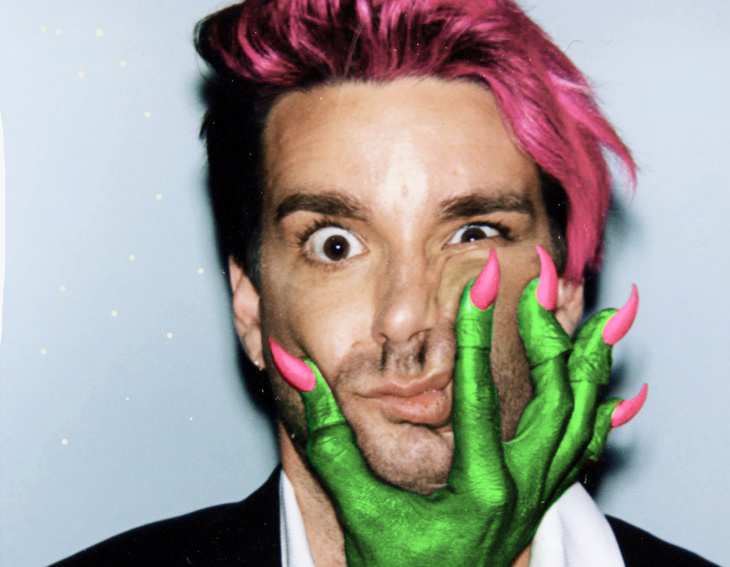Teen markets virus-shaped goodies to cheer up ailing consumers, making a novelty product from the novel coronavirus

Entrepreneur Hudson Hale, 17, had been mulling over the impact of the COVID-19 pandemic and was wondering if there was a product that could lift people’s spirits.
Stuck at home in the spring of 2020 and with online Oregon Episcopal School only taking up three hours each day, he had time to research. He discovered the Japanese candy Konpeito, whose sugar bobbles look vaguely like a coronavirus.
“The words COVID Candy just came into my head, it just kind of had a nice little ring to it,” Hale said. “So I started to searching around and trying to find different products and things that I could sell, and lo and behold, I discovered this old, traditional Japanese candy, Konpeito.”
Instead of manufacturing the candy, whose crystals take around two weeks to grow under special conditions, Hale decided to buy it in bulk on Ali Baba, the Chinese equivalent of Amazon, then to import it and repackage it. Using his cartooning skills, he put illustrated versions of President Donald Trump, Chinese premier Xi Jinping and top virus doc Dr. Anthony Fauci on the bag to make it clear it’s a novelty candy.
In a parody of Michelangelo, God and Adam are bumping elbows instead of touching fingers.
Hale himself, an otherwise healthy 17 year old, got the virus in August, along with his mother and 15-year-old sister. For fun, his sister made an array of extreme-tasting cupcakes, with siracha and mint extract, to test Hale’s loss of sense of taste and smell. He has a video of his family spitting them out while he has no reaction.
His friend, Ryan Westcott, programmed the ecommerce site, optimized for impulse purchase on mobile, while Hale crafted the design.

Hale had long been inspired by Joe Gebbia and Brian Chesky. Before they fully launched Airbnb, the online vacation rental company, the pair overcame Gebbia’s $20,000 in credit card debt by producing two novelty breakfast cereals during the 2008 election, called Obama O’s and Cap’n McCain’s. Taglines: “Obama O’s, the Cereal of Change,” and “Cap’n McCain’s, a Maverick in Every Box.” They made 500 of each and sold them for $40 per box, the kind of self-purchased swag a politics nerd might display on a shelf rather than eat.
Hale priced his COVID Candies at $12 per bag to cover costs. It’s a limited edition novelty product, and all profit will be donated to COVID-19 relief charities: the World Health Organization, United Nations Children’s Fund and Feeding America COVID-19 response fund.
“Joe Gebbia had just graduated from RISDE (the Rhode Island School of Design), which is also a school that I’m looking at,” Hale said. “They were able to make around $40,000 off of that (cereal), pay off their debt, pay off expenses and start to kind of fund their company. And so that’s where I find my inspiration: finding a relevant topic, creating some unique design around it, not producing a whole lot, but producing enough where people would want to purchase and hold on to a novelty item.”
In September, Hale and his mom took a two-week swing through the Eastern Seaboard to look at 10 colleges where he could study design.
Hale has a workshop in his basement with 3D printers, where he has made two drones with Westcott, including one 50-pound drone that he now uses for his side business, shooting real estate imagery. His mother owns the Pastini restaurant chain and his father is a homebuilder.
The real work behind the COVID Candies was haggling online with suppliers on Ali Baba. They are used to dealing in minimum order quantities of one ton. He got one of them to come down to 250 lbs.
The rest was production: having his friends come round for a socially distanced assembly line where they pack them in bags and seal them. Putting together 2,500 packages cost him $800.
The marketing plan — aside from pitching legacy media such as newspapers, radio and TV — consists of Instagram, Snapchat and TikTok, and sending samples to YouTube influencers.
“The goal is just to break even, so we (Hale and Westcott) can get our money back,” Hale said. “And then be able to make more money, so we can donate that. But it’s a situation where it’s a high risk, high reward. We don’t know if a lot of people are going to buy it. So, it’s kind of a shot in the dark, and a big learning experience.”
Joseph Gallivan
Reporter, The Business Tribune
971-204-7874
This email address is being protected from spambots. You need JavaScript enabled to view it.
Follow us on Twitter, Facebook and Instagram
Subscribe to our E-News
You count on us to stay informed and we depend on you to fund our efforts. Quality local journalism takes time and money. Please support us to protect the future of community journalism.


